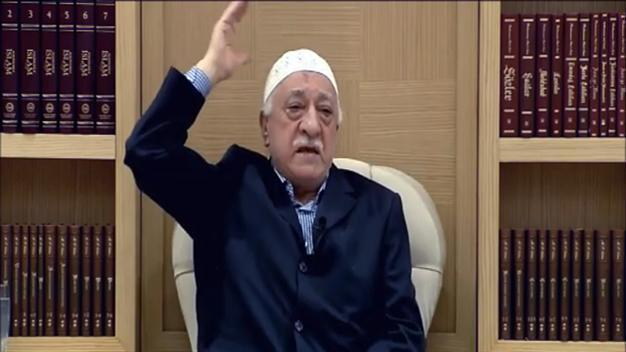BLOG: The Manichean factor and the Gülen conundrum
Zeki Ergas (*)

PM Erdoğan's ally-turned-nemesis Fethullah Gülen
The question at the heart of this short essay, one that mystifies the pundits and cognoscenti, both domestic and foreign, of Turkish politics, is the following: How can the tremendous and persistent success of Recep Tayyip Erdogan in Turkish politics be explained, given all the negative elements that plague his performance, to wit: lack of sophistication, brutality and arrogance, and widespread corruption? How to explain, in other words, in these circumstances, the strong and unshakable support of close to half of the Turkish electorate for Erdogan and his Justice and Development Party? Admittedly, the conventional explanations of his success: economic development, the rise of an Anatolian business class, the religious factor, his charisma, the lack of unity and the low quality of the opposition, and the almost automatic patriotic support of one's political leader in the face of attacks (partly justified) from the West, all these do explain, in large part, Erdogan's persistent success. And yet, as I shall try to argue below, a significant element or variable is still missing.
I believe that that significant element or variable is what could be named 'The Manichean Factor', which encompasses cultural, spiritual and intellectual characteristics. So, what is it? And how does it work in Turkish society and politics?
Broadly speaking, the Manichean factor means that a person tends to see everything in black and white: in other words, one either loves or hates; and, as a result, one sees one's rival or opponent as either guilty or innocent. In politics that tendency translates as: You are either my friend or my enemy; or, if you are not with me, then you are, necessarily, against me. What I am suggesting here is that in the Turkish society, this Manicheistic element is much stronger than in the Western societies. That was certainly the case in Atatürk's time: nobody could openly be against him, or oppose his policies, and the only time, in 1930, when, with his encouragement, an opposition party, the Liberal Republican Party, was created, led by Fethi Okyar, who was Atatürk's friend, it was a complete fiasco when, in fact, the party was able to generate a lot of support, especially in Western Turkey, and it was closed down after a year. It is important to note, in this respect, that if democracy works better in the West, it is also because the society is far less Manicheistic, in the sense that it is generally acknowledged that everything in society and politics comes in shades of grey, which can go from light grey to dark grey (but not in black and white). That difference is essential in my view, because it makes it easier for people to change their loyalties, which translates as an alternance of political parties in power.
A very good illustration of this Manicheistic factor operating in Turkish politics is what can be called the Fethullah Gülen conundrum. As long as he was an ally of Recep Tayyip Erdogan in the fight against the military, Fethullah was all lily white, that is, a great ally and a good friend; when he decided that Erdogan was bad for Turkey and, apparently, took some initiatives to get rid of him, he became charcoal black, and a bad enemy. And here I am not talking about the personal enmity of Erdogan for Gülen, but about half of the Turkish population (or more) which now see Gülen as a traitor and a despicable individual. In the West, in the same circumstances, he would have gone, say, from light grey, to dark grey, a far less serious degradation of the relationship.
Of course, this strong Manichestic Factor in society and politics is bad for democracy in Turkey. But, unfortunately, it is also one that is very difficult one to eradicate. To be able to do so would require serious work for at least for a couple of generations in the public school system of the nation.
(*) Dr. Zeki Ergas, a political economist and novelist, is a member of PEN International's Writers for Peace Committee. He currently teaches at Hacettepe University's MA Program of Peace and Conflict Studies. He is also writing the second tome of a family saga that takes place in Turkey, Palestine and the United States, in 1929-1945
